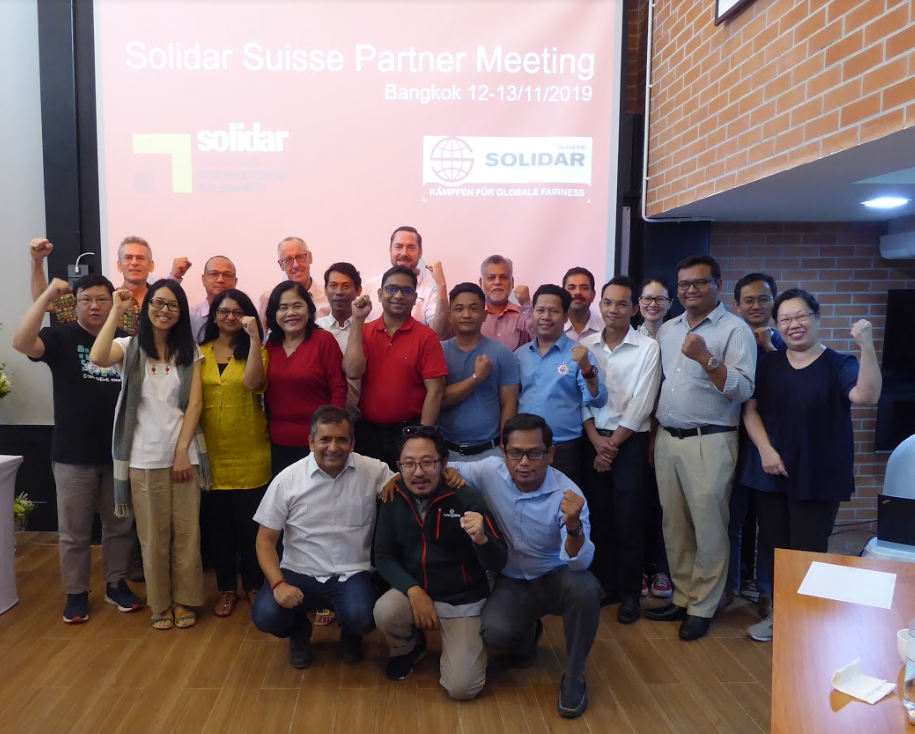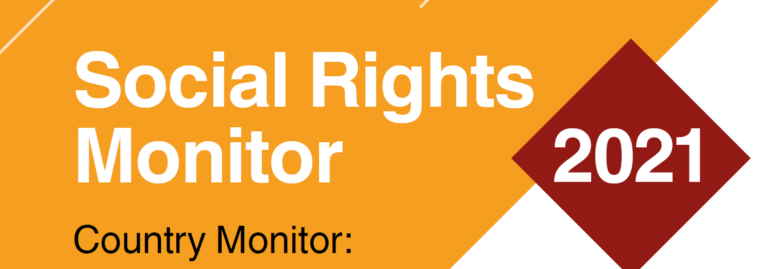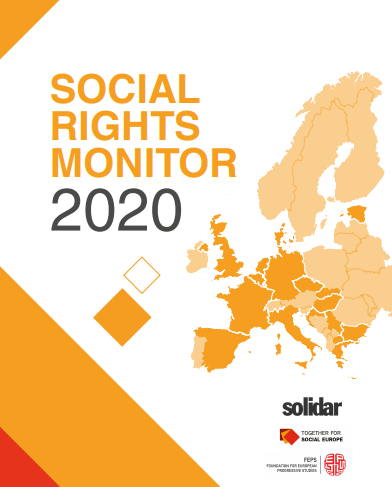Economic and Social Rights: SOLIDAR’s input into EU – South East Asia Civil Society Seminar
In parallel with the EU-ASEAN Dialogue on Human Rights that took place in Brussels from 26 to 29 November 2019, the European External Action Service (EEAS) hosted a consultation with CSOs active in South-East Asia, in order to identify concrete paths towards the implementation of the 2030 Agenda for Sustainable Development.
During the meeting, SOLIDAR presented its input paper on Economic and Social Rights in South East Asia, written with the contribution of its network in the region.
The paper highlights four areas where urgent actions are needed:
- The lack of democratic space and restrictions on freedom of association;
- The growing informal economy and lack of access to social protection;
- Occupational safety and health and the environment;
- The exploited and underpaid migrant labour force.
By highlighting the deterioration of decent work, social protection and freedom of association in the region, SOLIDAR Asian Network considers that
- The EU should increase pressure to try to reverse this trend. In this respect, the ‘Everything but Arms’ (EBA) withdrawal threat against Cambodia1, while not leading to significant changes has kept the government from further eroding labour rights and has caused it to drop unjustified charges against some independent trade union leaders.
- The EU should use all its political leverage to encourage its partner countries to fully comply with ILO international labour standards including freedom of association and occupational safety and health. On this point, SOLIDAR Asian Network highlighted that while asbestos has been and remains the biggest cause of occupational health issues in Asia, only a few Asian countries have ratified the 1986 ILO Asbestos Convention. In this regard, the EU should support the final ban on all forms of asbestos, and particularly chrysotile asbestos.2
Read our input paper, “Economic and Social Rights: SOLIDAR’s input into EU – SOUTHEAST ASIA CIVIL SOCIETY SEMINAR”
And also read the full set of recommendations that were adopted during the seminar.
1The Everything But Arms arrangement is one pillar of the EU’s Generalised Scheme of Preferences, which unilaterally grants duty-free and quota-free access to the European market for all products (except arms and ammunition) from the world’s Least Developed Countries, as defined by the United Nations. These trade preferences may be suspended in case of “serious and systematic violation of principles” laid down in the human rights and labour rights Conventions listed in Annex VIII of the GSP Regulation. Cambodia is one of nearly 50 developing countries that enjoy duty-free access to EU markets under the Everything but Arms scheme. In response to the country’s deteriorating human rights situation, the EU is now considering whether to withdraw trade preferences.
2Asbestos is the term used for a group of six naturally occurring mineral fibres. Chrysotile is the most encountered version of asbestos. It has properties that make it valuable in building materials, but can be deadly when dispersed into air as it favours the occurrence of lung cancer when inhaled. Source : https://www.asbestossafety.gov.au/sites/asea/files/documents/2019-04/CHRYSOTILE%20KEY%20FACTS_180419%20final_0.pdf





